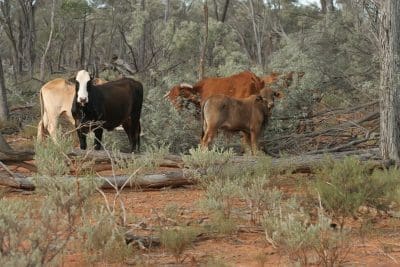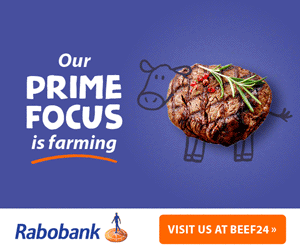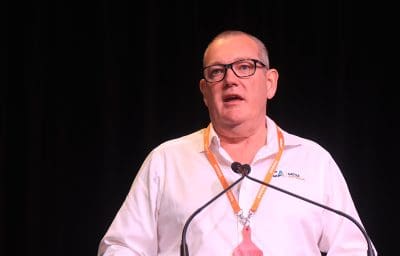Next year, the EU will ban the sale of seven imported commodities — beef, soy, palm oil, wood, cocoa, coffee, and rubber — if grown on recently deforested land.
 At the same time corporations around the world, including major financial intuitions, are making “deforestation free” commitments in relation to the agricultural sector.
At the same time corporations around the world, including major financial intuitions, are making “deforestation free” commitments in relation to the agricultural sector.
So, how will ‘deforested land’ be defined?
A confusing array of potential definitions globally and a lack of clarity is a key area concern for the Australian red meat sector, as concrete moves to block market access for agricultural products based on that broad term emerge.
“A range of pledges on eliminating deforestation in supply chains by Australian companies has resulted in the use of a wide range of terminology without specific definitions, leading to ambiguity and uncertainty in our industry,” the Australian Meat Processor Corporation stated in a recent report.
 International frameworks and corporate policies are becoming increasingly difficult to compare with deforestation-free definitions, which differ widely across regional and country contexts, the report notes.
International frameworks and corporate policies are becoming increasingly difficult to compare with deforestation-free definitions, which differ widely across regional and country contexts, the report notes.
It adds that EU deforestation regulations are likely to require geo-coordinates of all production locations for the commodity up to the point of processing (such as birth to slaughter for cattle) and include evidence of compliance with the relevant laws in the country of production.
The AMPC is working to develop a decision support tool for red meat processors to help them prepare for EU compliance reporting, and has instigated a research paper ‘Defining Deforestation Free Supply Chains for Red Meat Products’ as part of that process (click here to download).
How “deforestation” is defined and the data that Australian cattle producers will need to be able to provide to maintain market access in a changing global environment is set to be a key topic of interest and debate at Beef 2024 next week.
The EU Deforestation Regulations (EUDR) represent the first set of regulations to emerge in key markets, but are unlikely to be the last.
Australian definition
Cattle Australia has been working to develop a national definition on deforestation for the Australian context to be globally accepted for use in the supply chain and by financial institutions.

Dr Chris Parker
The national grassfed producer representative body says a clear, evidence-based definition of deforestation and biodiversity that reflects the uniqueness of the Australian landscape, for use across the entire Australian supply chain, from producers, saleyards, feedlots to processors, retailers, supermarkets and banks, is needed to guide this debate going forward.
“It’s just not feasible to compare Australia’s land management practices for beef production with other jurisdictions, so we need to develop fit-for-purpose, regionally specific indicators for global reporting that recognise our inherent ecological differences.,” CA CEO Dr Chris Parker said earlier this year.
Cattle Australia is planning to announce a set of principles upon which the Australian deforestation definition will based at a Beef 2024 seminar next Thursday afternoon.
The following morning, agricultural systems scientist Dr Steve Wiedemann from Integrity Ag and Environment will lead a seminar examining the science around deforestation, including the consideration that policy “must respect the science and protect agriculture”.
In a recent interview with the Beef 2024: What’s Your Beef Podcast, Dr Wiedemann said it was crucial that plans and targets are realistic and reflect that there are limits to “how hard and how fast we can go”.
On deforestation, technology was changing the nature of the issue.
Producers could shut the gate but they cannot stop satellites from passing over and monitoring vegetation trends.
Consumers around the world were sending a clear message back down the supply chain that they don’t support deforestation, but it was also important to be clear about what deforestation actually is, he said.
Globally the issue became a big topic because of countries clearing high value rainforest, in places such as the Amazon and Sumatra.
This did not reflect what is happening in Australia, however local producers have been caught up in the global issue.
“At the heart of it is a societal conversation about what we think is acceptable in land management,” Dr Wiedemann told the podcast.
“Clearly the world doesn’t accept clearing virgin rainforest, but that is not our thing here.
“Our thing is about managing landscapes for a productive outcome, we all want to have farms that are sustained for future generations.
“So we’ve just got to strike the right balance on that, and there’s some topics that we need to resolve (such as) what is acceptable in terms of vegetation management.
“We need to be clear about what managing practices are acceptable to feed the world.”
“We just produce high quality food and I’ve never taken the view that we should hang our heads in shame about that, we’re feeding the world.
“We need to do it in a way that is sustainable and acceptable to the other stakeholders in society, but I think we can do it.”
